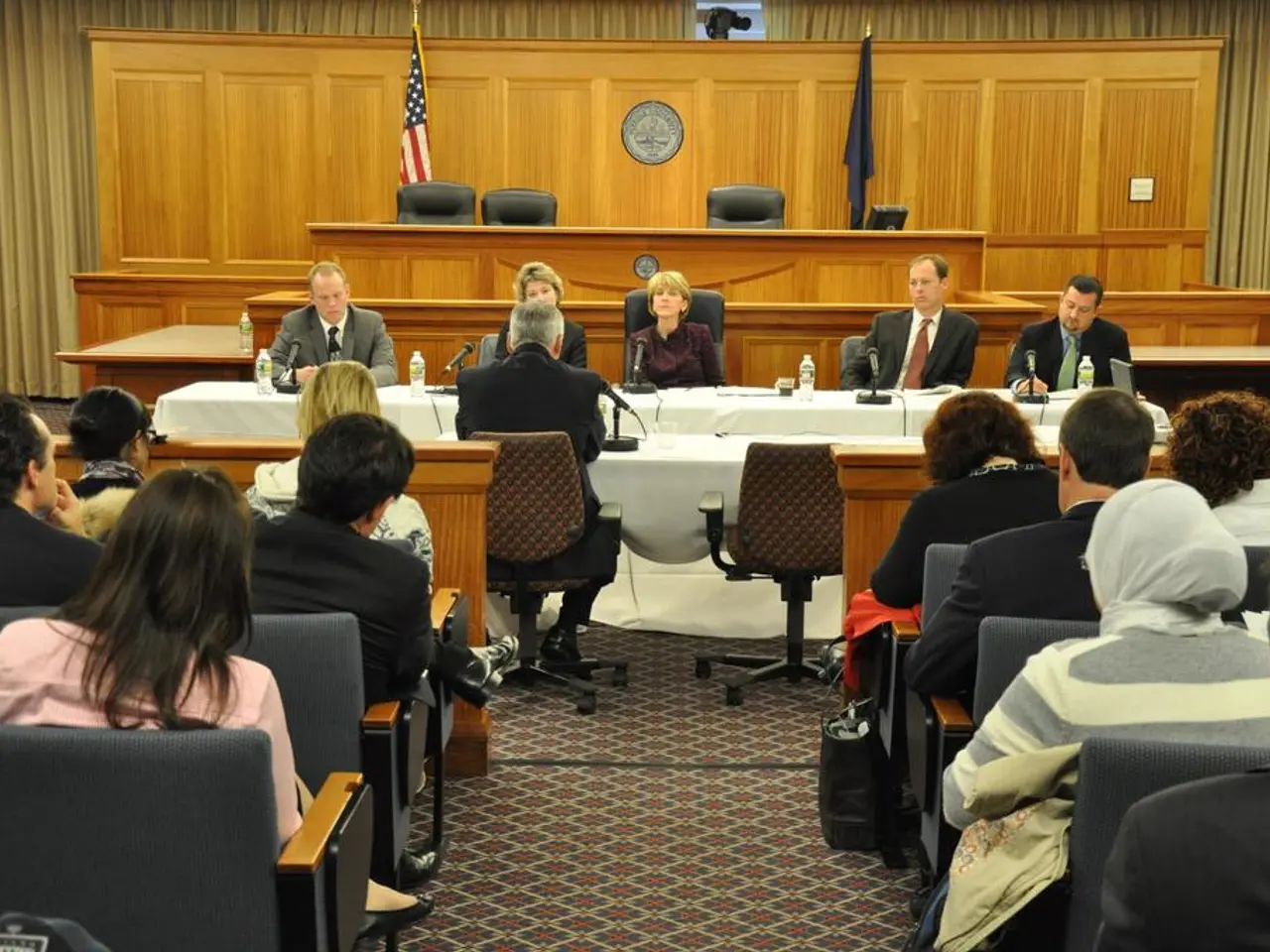Senate forwards Trump's proposed Dogecoin budget reduction bill to the House, with the looming deadline to enact it approaching
In a dramatic 12-and-a-half-hour voting session on July 17, 2025, the U.S. Senate narrowly passed a $9 billion rescissions package, marking a significant move towards reducing government spending on foreign aid and public broadcasting. However, the bill's approval was not unanimous, with two Republican senators, Lisa Murkowski and Susan Collins, joining all Democrats in opposition.
The proposed cuts, championed by the Trump White House, primarily targeted reductions in foreign aid, notably USAID, and public broadcasting, including NPR and PBS. While most Senate Republicans supported the bill, the split vote reflects a notable lack of unanimity within the GOP.
Republican leaders backing the cuts framed them as a necessary step towards reducing government waste, addressing the national debt, and aligning with conservative values of limited government and fiscal restraint. The Trump administration, through the Department of Government Efficiency, identified the targeted programs as areas of "woke" spending and inefficiency.
However, some Republicans expressed reservations about using a rescissions package—a mechanism that allows the executive branch to claw back previously approved funds—to implement these cuts. They argue this approach concentrates budgetary power in the White House, potentially undermining the traditional role of Congress in the appropriations process. This concern reflects a broader anxiety about upsetting the balance of power between the legislative and executive branches.
Senators Collins and Murkowski highlighted practical worries about the consequences of steep cuts to foreign aid and public broadcasting, particularly the potential impact on public safety and education. For example, reductions in public broadcasting could affect emergency alert systems, while cuts to foreign aid might have diplomatic and humanitarian repercussions.
The split vote underscores ongoing tensions within the Republican Party between those prioritizing aggressive fiscal retrenchment and those wary of procedural overreach or the disruption of valued public services. While the majority of Senate Republicans view these cuts as a fulfillment of campaign promises to reduce government spending, dissenters are concerned that the method and scope of the cuts could have unintended consequences, both for governance and for the party’s broader political goals.
The House must now take up the package again due to Senate changes, and it must pass the package by a Friday deadline mandated under the budget rules. If successful, the package will head to President Trump's desk for signing. Sen. Mike Rounds announced his support for the funding cut package, having secured an agreement to maintain funding for rural radio stations in South Dakota. Notably, the controversial cut of $400 million for the AIDs relief program PEPFAR was dropped from the funding cut package.
Sources: [1] ABC News [2] The Hill [3] Politico [5] The New York Times [6] CNN
The proposed cuts in politics, primarily targeting foreign aid and public broadcasting, are part of a larger policy-and-legislation debate sparked by the Trump White House. The split vote within the GOP on this rescissions package reflects ongoing tensions between those prioritizing aggressive fiscal retrenchment and those concerned about procedural overreach and disruption of valued public services like emergency alert systems and AIDS relief programs.






